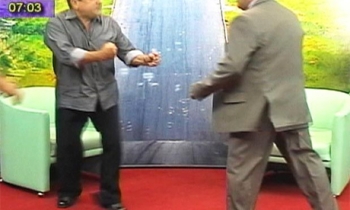THE INTERNET hasn't made everyone happy. There's spam, pornography, shady businesses and political dissent.
A 40-nation U.N. study group thinks it has found another sore point: the nonprofit agency that sets the domain-naming rules and numbered computer addresses used for e-mails and Web sites. The problem? This nearly-invisible agency -- the Internet Corporation for Assigned Names and Numbers -- is under the distant aegis of the U.S. government.
The U.N. plan is to loosen this hold -- never very strong to begin with -- in the name of wider participation and more oversight. Because the Internet has become indispensable, it's time to end Washington's controls to reflect the Internet's worldwide character, critics say.
The Bush administration begs to differ. There is no way that Washington will cede control over Internet architecture to the great unknown of the United Nations, the argument goes.
It's not hard to spot the underlying dynamic -- a tug of war over American dominance of a vital technology and who gets to run it next.
The U.N. study group also contains Syria, China and Cuba, three nations that have taken steps to bottle up Internet-supplied political protest. Pressures to curb free chatter on the net are a given if the United Nations takes over, Washington states.
Before another United States-versus-the-world fight breaks out, there should be more debate. If Internet operations are changed, the new system will need to be as transparent and fair as it has been to date. The current agency has an international board, listens to suggestions and is due to drop its U.S. affiliation next year. Junking a system that has worked so well, all in the name of removing perceived U.S. control shouldn't be done lightly. The United Nations has bigger problems in running its own affairs.









